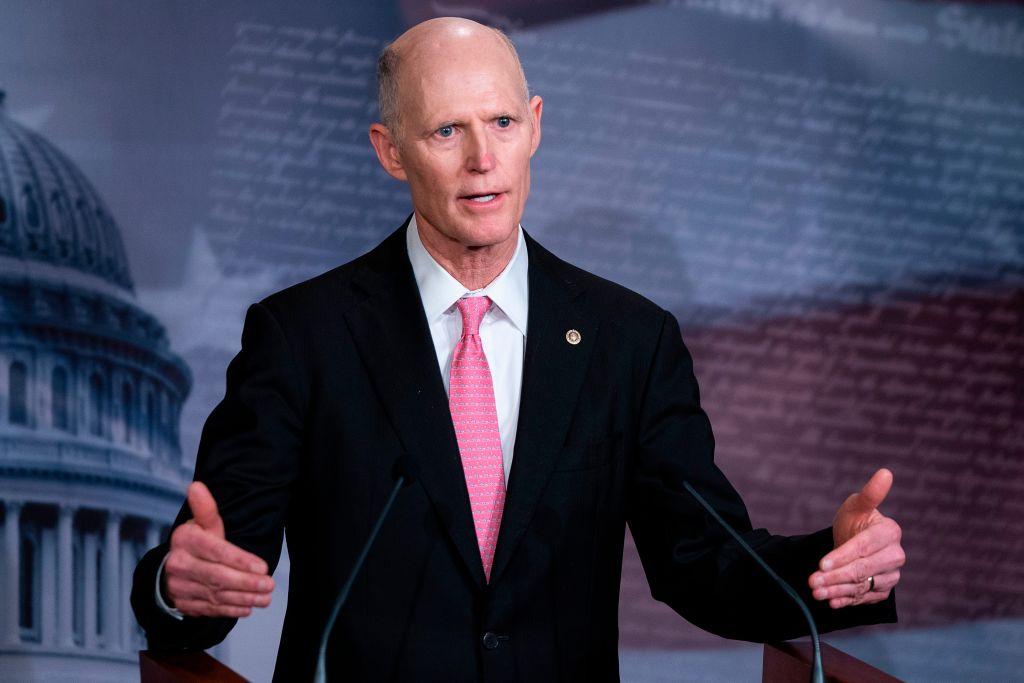Sen. Rick Scott (R-Fla.) says “unbelievable” levels of inflation and debt are now his chief concern, with the Florida Republican’s remarks coming a day after a new poll shows that 69 percent of Americans disapprove of President Joe Biden’s handling of inflation.
“My biggest concern is this unbelievable inflation and this unbelievable debt. There is a day of reckoning for all of this debt,” Scott told CNBC’s “Squawk Box” in an interview on Dec. 13, when asked to comment on a recent Congressional Budget Office (CBO) analysis of Biden’s Build Back Better spending agenda.





